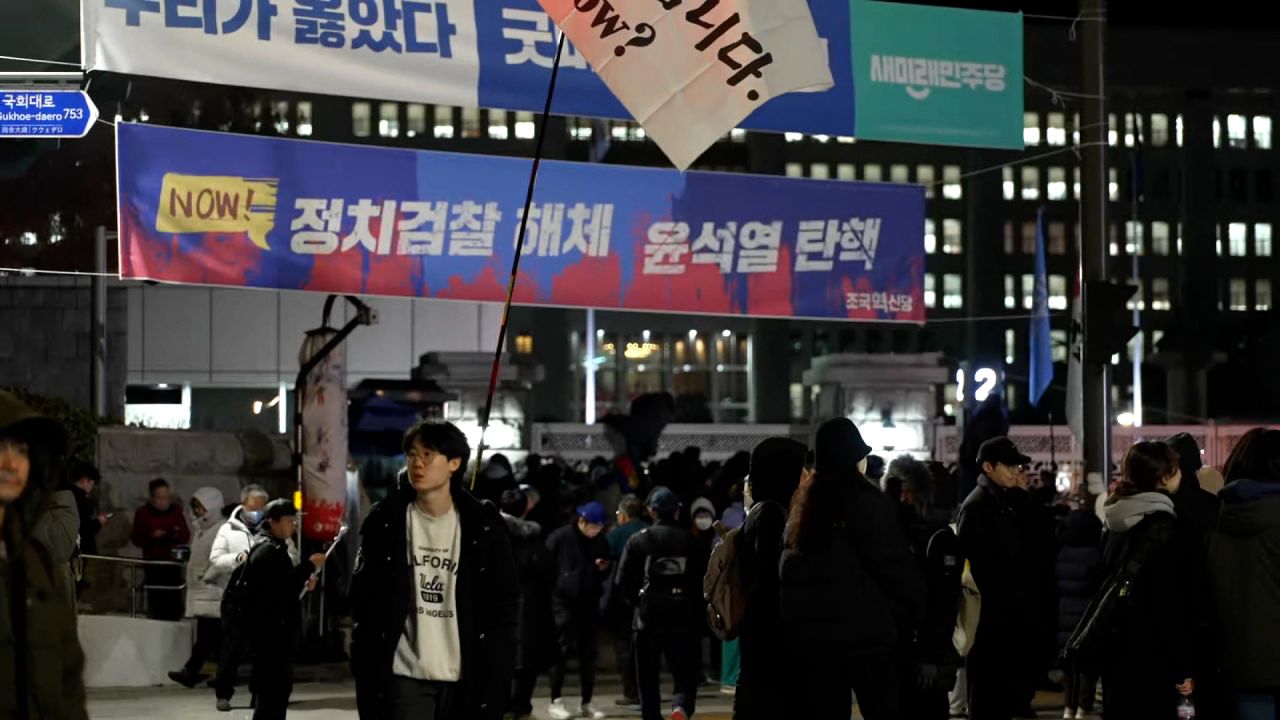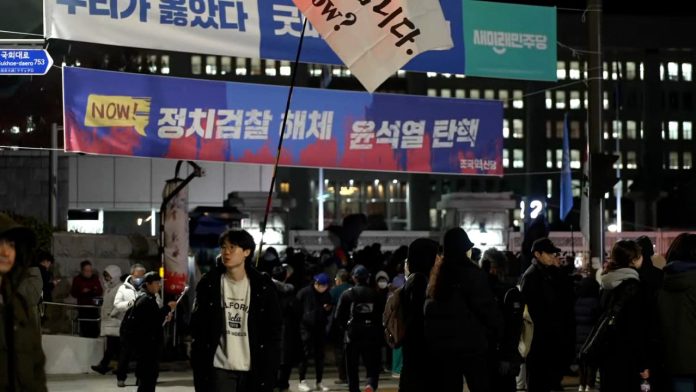South Korea recently experienced a dramatic series of events that plunged its political landscape into turmoil. In a six-hour period on Tuesday night, President Yoon Suk Yeol declared martial law, sparking outrage across the nation. By dawn, faced with intense backlash, Yoon reversed the order, leaving the country in political disarray and uncertainty about its future.
What Happened?
The controversy began late Tuesday night when President Yoon announced martial law in an unanticipated televised address. He accused the opposition Democratic Party of engaging in “anti-state” activities and sympathizing with North Korea. The declaration came amid tensions over the opposition’s motion to impeach top prosecutors and reject the government’s budget proposal.
Martial law, a measure granting the military temporary authority during emergencies, banned protests, rallies, and political activities. The sudden move alarmed citizens and lawmakers, with many drawing comparisons to South Korea’s authoritarian past.
In response, opposition lawmakers stormed into parliament, pushing past soldiers who had been deployed to block access. During an emergency overnight session, legislators unanimously voted to revoke the martial law order. Under legal obligation, Yoon lifted the decree by 4:30 a.m. Wednesday, but he maintained that the opposition was obstructing his administration’s progress.

Political Fallout
Yoon’s declaration has deepened the political deadlock in South Korea, where opposition parties have held a parliamentary majority since April. His popularity has already suffered due to scandals, controversies, and clashes with lawmakers over critical policies.
The opposition has accused Yoon of appointing biased officials and failing to address scandals involving his wife, including allegations of stock manipulation. These tensions culminated in six opposition parties filing a motion for Yoon’s impeachment.
If the impeachment is approved by two-thirds of parliament, it will proceed to the Constitutional Court, where at least six justices must agree for it to take effect. In the meantime, Yoon’s powers as president would be suspended.
Several senior officials, including Yoon’s chief of staff and more than ten presidential aides, have resigned in the wake of the crisis. Even Yoon’s party leader has called for the dismissal of the defense minister, who reportedly recommended martial law.
Public Reaction
The martial law announcement shocked the nation, sparking widespread protests. Citizens in Seoul gathered outside parliament, holding signs demanding Yoon’s resignation and pledging to prevent a return to authoritarian rule. South Korea’s largest labor union has also vowed to strike until Yoon steps down.
The international community expressed concern, with the United States voicing “grave concern” over the martial law order and emphasizing the importance of democracy in the US-South Korea alliance.
Historical Context
South Korea’s declaration of martial law is unprecedented in its modern democratic era. The country transitioned to democracy in the 1980s after decades of military rule. The last instance of martial law occurred in 1980 during a violent uprising against authoritarian rule. For many, Yoon’s decree reignited painful memories of that era.
What’s Next?
South Korea faces an uncertain path forward. Impeachment proceedings are underway, and calls for Yoon’s resignation continue to grow. The political crisis comes at a critical time for South Korea, a key US ally and one of the world’s largest economies.
As the situation develops, the country’s commitment to democracy will be tested, raising questions about the balance of power and the resilience of its institutions.



